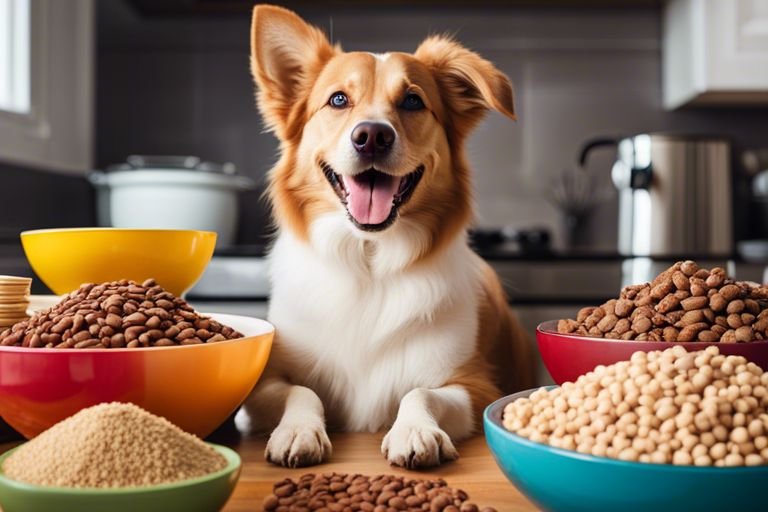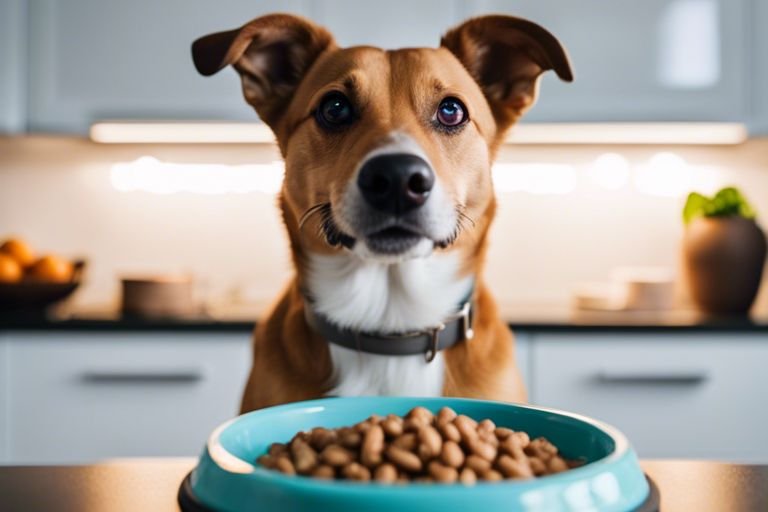‘How-To Choose The Best Grain-Free Puppy Food For Your Furry Friend’
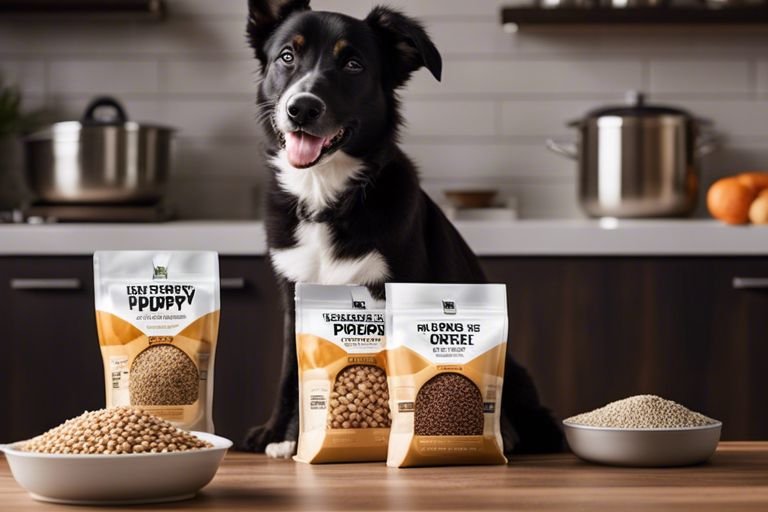
Overwhelmed by the array of grain-free puppy food options available in the market? Choosing the right food for your furry friend is imperative for their growth and development. In this how-to guide, we will provide you with expert tips and insights on how to select the best grain-free puppy food that meets the nutritional needs of your beloved companion. With our comprehensive advice, you can make an informed decision that will support your puppy’s health and well-being. Let’s probe into the world of grain-free puppy food and ensure your furry friend gets the best start in life.
Key Takeaways:
- Consider Your Puppy’s Specific Needs: Look for grain-free puppy food that meets your furry friend’s individual needs, such as age, breed, size, and activity level.
- Check the Ingredient List: Opt for grain-free puppy food with high-quality, whole food ingredients like real meat, fruits, and veggies. Avoid fillers, by-products, and artificial additives.
- Consult with Your Veterinarian: Before making any changes to your puppy’s diet, consult with your veterinarian to ensure the selected grain-free food is safe and appropriate for your puppy.
- Monitor Your Puppy’s Response: Pay attention to how your puppy reacts to the new grain-free food. Look out for any signs of allergies, sensitivities, or digestive issues.
- Gradually Transition to New Food: To prevent stomach upset, slowly transition your puppy to the new grain-free food by mixing it with their current food over the course of a week or so.
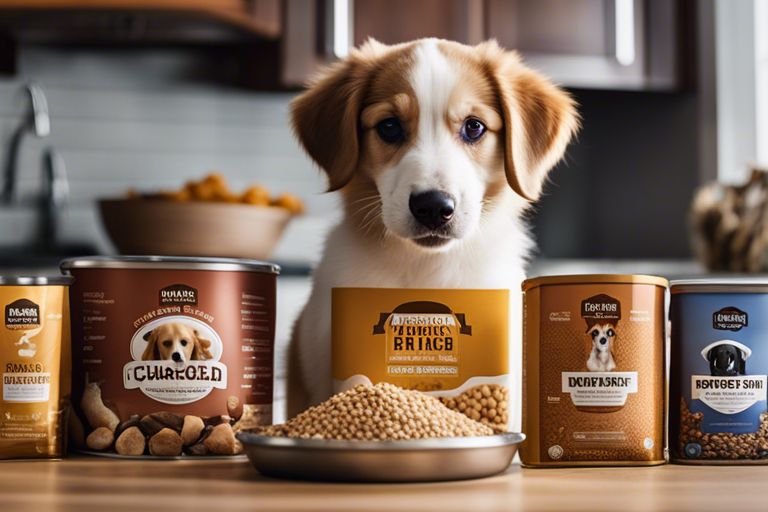
Understanding Grain-Free Diets for Puppies
The Basics of Grain-Free Puppy Nutrition
Nutrition is a vital aspect of your puppy’s overall health and well-being. Regarding choosing the best food for your furry friend, understanding grain-free diets is important. Grain-free puppy food typically excludes common grains such as wheat, corn, and soy. Instead, it focuses on providing high-quality sources of protein, healthy fats, and important nutrients to support your puppy’s growth and development.
Common Misconceptions About Grain-Free Foods
Diets rich in grains have been the norm for many years, leading to misconceptions about the benefits of grain-free foods. Some may believe that grain-free diets lack important nutrients or are not suitable for all puppies. However, this is not the case. Grain-free puppy foods can provide a well-balanced diet that meets your puppy’s nutritional needs without the use of grains.
Another common misconception is that grain-free diets are only suitable for puppies with food allergies or sensitivities. While grain-free foods can be beneficial for puppies with these issues, they can also be a healthy choice for all puppies. By opting for a grain-free diet, you can provide your furry friend with a nutritionally dense and easily digestible meal that promotes overall health and well-being
Factors to Consider When Choosing Grain-Free Puppy Food
Assuming you are on the lookout for the best grain-free food for your precious puppy, there are several crucial factors to consider to ensure that you are making the right choice for your furry friend’s health and well-being.
- Puppy Size and Breed Considerations
- Nutritional Requirements for Puppies
Puppy Size and Breed Considerations
When choosing a grain-free puppy food, it is imperative to consider your puppy’s size and breed. Different breeds have varying nutritional requirements, and what may work for one breed might not be suitable for another. Some puppies may require higher protein levels, while others might need specific nutrients for healthy growth and development. It is advisable to consult with your veterinarian to determine the best food choice based on your puppy’s size and breed.
Nutritional Requirements for Puppies
Considerations should be made for the nutritional requirements of puppies when selecting a grain-free diet. Puppies require a diet that is rich in high-quality proteins, imperative fatty acids, vitamins, and minerals to support their rapid growth and development. For instance, a grain-free puppy food should contain ingredients such as real meat, fruits, and vegetables to provide a well-balanced and nutrient-dense diet for your growing pup.
After considering these factors and consulting with your veterinarian, you will be better equipped to choose the best grain-free puppy food that meets your furry friend’s specific needs.
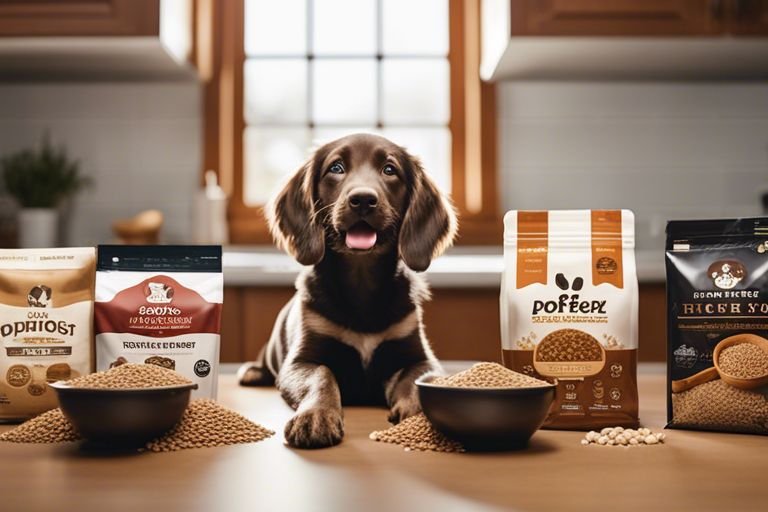
How-to Evaluate Grain-Free Puppy Food Brands
Reading and Understanding Ingredient Labels
Even if a puppy food is marketed as grain-free, it’s imperative to read and understand the ingredient labels. Look for whole protein sources like chicken, turkey, salmon, or beef as the first ingredients. Avoid fillers such as corn, wheat, or soy, as these may not provide the necessary nutrients for your growing puppy.
Tips for Assessing Brand Quality and Reputation
- Check for recalls or quality issues associated with the brand.
- Research the company’s commitment to using high-quality, ethically sourced ingredients.
- Look for brands recommended by veterinarians or breeders.
Reading reviews from other puppy owners can also give you valuable insights into the brand’s reputation and the experiences of other pet parents. Any negative patterns should raise a red flag and prompt you to consider other options.
Another section
- Verify that the brand conducts feeding trials to ensure their food meets nutritional standards.
- Look for transparency in ingredient sourcing and manufacturing processes.
It’s crucial to choose a grain-free puppy food brand that prioritizes your pup’s health and well-being. Any doubts about a brand’s quality or reputation should lead you to explore different brands until you find the best match for your furry friend.

Making the Transition to Grain-Free Puppy Food
Unlike traditional puppy foods that contain grains, grain-free puppy food offers a range of benefits for your furry friend. If you are considering making the switch, it’s imperative to understand how to do so effectively. For a comprehensive guide on the best grain-free puppy food options, check out The Best Grain-Free Food for All Kinds of Dogs – Rover.com.
How-to Introduce Grain-Free Food to Your Puppy
Grain-free puppy food should be introduced gradually to prevent any digestive upsets. Start by mixing small amounts of the new food with your puppy’s current food, gradually increasing the ratio of the new food over 7-10 days. This transition period allows your puppy’s digestive system to adapt to the new food without causing any stress.
Monitoring Your Puppy's Health During the Transition
On the journey to grain-free nutrition, it’s crucial to monitor your puppy’s health closely. Keep an eye on their energy levels, coat condition, stool quality, and overall well-being. By observing these factors, you can ensure that the new grain-free diet is suiting your puppy and making a positive impact on their health.
Related Article: ‘Homemade Vs. Commercial Grain-Free Puppy Food – Which Is Best?’
Conclusion
Presently, selecting the best grain-free puppy food for your furry friend is crucial for their overall health and well-being. By considering factors such as your puppy’s breed, age, size, and any dietary restrictions, you can choose a high-quality grain-free food that meets their nutritional needs. Reading ingredient labels carefully, consulting with your veterinarian, and monitoring your puppy’s response to the new food can help ensure that you make the right choice. Recall, a balanced diet is key to helping your puppy grow and thrive, so take the time to research and choose the best grain-free option for your beloved companion.
FAQ
Q: Why is it important to choose the best grain-free puppy food for my furry friend?
A: Choosing the best grain-free puppy food is crucial as puppies have specific nutritional needs for optimal growth and development. Grain-free options can also help with allergies or sensitivities that some puppies may have to grains.
Q: What should I look for when selecting grain-free puppy food?
A: Look for high-quality proteins like chicken, turkey, or salmon as the first ingredient. Avoid fillers like corn, wheat, and soy. Opt for balanced nutrition with vital vitamins and minerals for overall health.
Q: Are there specific ingredients I should avoid in grain-free puppy food?
A: Yes, avoid artificial preservatives, colors, and flavors. Also, steer clear of by-products and excessive amounts of carbohydrates. These can be harmful to your puppy’s health in the long run.
Q: How can I transition my puppy to a new grain-free diet?
A: Slowly Introduce yourself.the new food by mixing it with the current food over 7-10 days. Monitor your puppy for any signs of digestive upset or allergies during the transition period.
Q: Is grain-free puppy food suitable for all puppies?
A: Grain-free puppy food is suitable for most puppies, especially those with allergies or sensitivities to grains. However, always consult your veterinarian before making any significant changes to your puppy’s diet.
